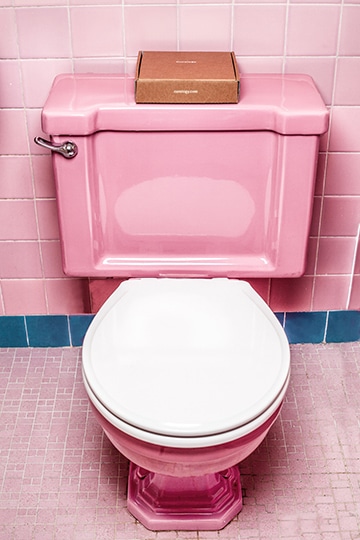
Your diet dictates the nutrients your body receives, but it also affects other areas of your health besides nutrition. It can cause digestive issues, like diarrhea and constipation. Constipation is a problem many people have, but few want to discuss it, especially with friends. Instead of addressing the underlying issue, many resort to taking laxatives, which can lead to laxative dependency, particularly if you take stimulant types of laxatives.
A lot of things play a role in developing constipation.
The amount of fiber in your diet, your level of hydration, and how active you are all play an important role in keeping your colon healthy and normal bowel movements. A simple change like riding a bike for a half hour a night stimulates your elimination system to provide bathroom success. Another important factor is hydration. Even minor dehydration can affect bowel movements, leaving your waste dry and hard to pass. Increasing the water you drink daily can keep your system at peak performance.
Changing your diet to include more whole plant-based foods can also change your potty pattern.
Whole foods, like whole grains, or fresh fruits and vegetables, contain fiber. There are two types of fiber. The first type is insoluble fiber. That is found in whole grains, bran, and vegetables. Insoluble fiber provides bulk to the stool to help it pass through the colon. The second type of fiber is soluble fiber. Soluble fiber absorbs fluid and keeps the waste soft and easier to pass. It’s found in lentils, fruits, vegetables, nuts, oat bran, and peas. Soluble fiber binds with toxins and excess cholesterol, then it’s removed from the body with other waste. Soluble fiber also helps feed beneficial bacteria, which also helps with constipation.
Just because you don’t go every day doesn’t mean you’re constipated.
Some people go as often as three times a day, while others may only go a couple of times a week. Normal bowel movements vary. How can you tell if you’re constipated? The first sign is that you feel like you have to go, straining on the toilet, but don’t have a productive session. You are bloated and if you go, only small hard pellets come out. It’s not about the number of days, but how you feel.
- Eating food high in omega-3 fatty acids can help keep your bowel movements consistent. Foods that contain it include salmon and other fatty fish, krill oil, and flaxseed.
- Eating juicy fruit and vegetables will help you in two ways. Both provide fiber and increase your intake of liquids, which helps counter dehydration.
- If you’re adding fiber to your diet, increase it slowly. Increasing it too rapidly can also cause bloating and constipation. When you increase fiber intake, make sure you increase your intake of water, too.
- Prunes are known for their constipation-busting benefits. Not only are prunes high in fiber, but they also contain sorbitol, which is a natural laxative. The sorbitol in prunes is often used in chewing gum and candies, which may also cause digestive issues.
For more information, contact us today at Body Sculptors Personal Training
